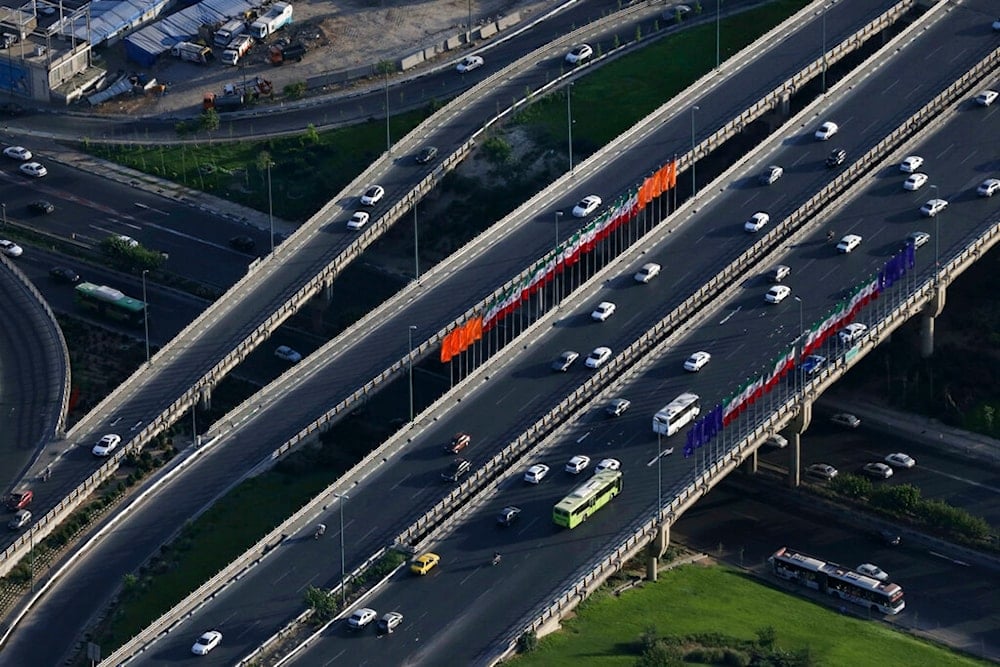Iran, Iraq discuss acceleration of key economic projects
The two parties exchanged views on key political, security, and regional developments.
-

In this picture taken on Wednesday, June 17, 2015, cars drive on highways in northern Tehran, Iran (AP)
Iran’s Deputy Foreign Minister Saeed Khatibzadeh and Iraqi Foreign Minister Fuad Hussein discussed efforts to accelerate the finalization of major economic projects, including the Shalamcheh-Basrah railway, during a meeting on the sidelines of the Fourth Antalya Diplomacy Forum in Turkey on Friday.
According to Iran’s state news agency IRNA, the two sides also exchanged views on key political, security, and regional developments, as well as the ongoing indirect talks between Iran and the United States taking place in Muscat, Oman.
Earlier in the day, Khatibzadeh held a separate meeting with Croatian Foreign Minister Gordan Grlić-Radman to discuss bilateral ties.
The Fourth Antalya Diplomacy Forum opened Friday in the Turkish city of Antalya, bringing together senior diplomatic officials and political scholars from around the world to discuss pressing international issues.
Pezeshkian stresses importance of Iraq ties
Iranian President Masoud Pezeshkian affirmed that relations with Iraq are among the most important areas of Iran’s foreign policy, emphasizing that the Iraqi people are "brothers and friends" to Iran.
Pezeshkian’s remarks came during a phone call on Friday with his Iraqi counterpart, Abdul Latif Rashid. He expressed hope for a direct meeting in the near future to exchange views on ways to strengthen cooperation and understanding between the two countries in a manner that serves the well-being and stability of both the Iranian and Iraqi peoples.
For his part, President Rashid congratulated the Iranian leadership and people on the occasion of the new year, affirming that the Iraqi people and government have always stood by Iran and wish its people prosperity.
He stressed that "Iraq is ready for any form of cooperation and coordination with Iran to promote stability, security, and prosperity in both countries and for the peoples of the region."
The two presidents discussed ways to enhance bilateral relations in various areas of mutual interest and to expand cooperation aimed at fostering stability and development in the region.
US government depriving Iraqis of rights
Back in March, Iranian Foreign Minister Abbas Araghchi condemned the US government's decision to "target the innocent Iraqi people by depriving them of basic services such as electricity, especially as the hot months of next year approach."
"We stand with the Iraqi people, and we affirm our commitment to our pledge to the Iraqi government to cooperate in confronting the illegal measures taken by the United States," Araghchi said in a post on X.
Iraq currently lacks immediate alternatives to replace the energy imported from Iran, a shortfall that will pose a major challenge in meeting domestic electricity demand, particularly during the summer months, Reuters reported, citing three energy officials.
A US official had confirmed that Washington has opted not to renew a waiver that allowed Iraq to purchase electricity from Iran without violating sanctions.
"Government has started to implement urgent measures to reduce the impact of the U.S. decision on Iraq power supply," one senior electricity ministry official told Reuters.

 3 Min Read
3 Min Read










